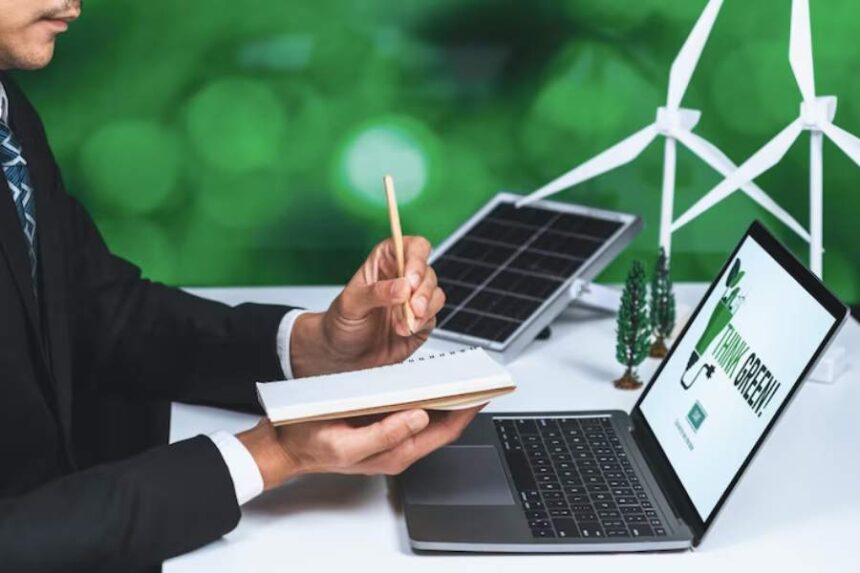As solar panels soak up the sun’s energy, solar inverters get to work, expertly converting the DC power into usable AC electricity. It’s a match made in heaven, making it possible to power our daily lives with clean, renewable energy. However, like all technology, solar inverters have a finite lifespan, necessitating periodic replacement and recycling. Think about it: efficient lifecycle management of inverters does more than just keep them running smoothly – it also delivers significant benefits to the environment and your bottom line. Harvest the value from your used solar inverters by selling and recycling them wisely. This savvy approach can yield significant returns for individuals and businesses alike.
- What are Solar Inverters?
- Understanding Solar Inverter Lifespan and Replacement Indicators
- Benefits of Recycling Solar Inverters
- Environmental benefits: reducing landfill waste and pollution
- Economic benefits: potential for material recovery and reuse
- Current Market Trends for Solar Inverters
- Options for Selling Used Solar Inverters
- Platforms and strategies for selling used inverters
- Tips on how to appraise and market used inverters effectively
- Preparing Your Solar Inverter for Sale
- Steps to ensure your inverter is in good condition for sale
- Importance of documentation, warranties, and providing proof of maintenance
- Recycling Processes for Solar Inverters
- Detailed explanation of how solar inverters are recycled
- Information on finding and choosing recycling facilities specializing in electronic or solar equipment
- Regulations and Compliance in Selling and Recycling Inverters
- Conclusion
What are Solar Inverters?
A solar inverter’s primary function is to convert DC electricity produced by solar panels into AC electricity, which is the standard form of power used by most household appliances and the wider electricity grid. This conversion is essential as it allows the energy generated by solar panels to be either used directly in homes and businesses or fed back into the grid.
Managing the lifecycle of solar inverters involves overseeing their performance from installation to eventual replacement and recycling. Think of this process as the unsung hero of solar power systems – the secret to keeping them humming along efficiently while minimizing waste and saving valuable resources from the scrap heap. Environmentally, effective lifecycle management helps reduce landfill waste and pollution. Think of it as a win-win: recycling copper, silver, and aluminum reduces the environmental impact of production, saves resources, and sets the industry on a path to a more sustainable tomorrow.
Understanding Solar Inverter Lifespan and Replacement Indicators
Solar inverters typically have a lifespan ranging from 10 to 15 years, depending on the brand, model, and environmental conditions of their operation. This lifespan is significantly shorter than that of solar panels, which can function effectively for up to 30 years. This discrepancy means that inverters will need replacement at least once within the operational timeframe of a solar energy system.
Key signs that indicate a need for replacement or recycling
It’s vital to recognize when a solar inverter is nearing the end of its useful life. Common indicators include a notable decrease in energy production efficiency, frequent shutdowns, error messages, or even physical signs of wear and tear such as corrosion or noise. Early identification of these signs can prevent the inefficiency of the entire solar power system.
Benefits of Recycling Solar Inverters
Environmental benefits: reducing landfill waste and pollution
Proper recycling of solar inverters helps curb landfill waste, where hazardous materials could leach into the environment. By dismantling and correctly disposing of electronic components, pollution is minimized, and the environmental footprint of solar technology is contained.
Economic benefits: potential for material recovery and reuse
Recycling solar inverters can also have tangible economic benefits. Imagine giving old inverters a new life. By reusing valuable materials from these old devices, we can reduce our reliance on raw materials and make a more sustainable impact on the environment.
Current Market Trends for Solar Inverters
Overview of the demand for new vs. Buying used solar inverters can be a smart move for those looking to cut energy costs without breaking the bank.
The solar inverter market is in constant motion, with buyers snatching up both brand-new and previously owned models. Spurred on by technological breakthroughs and a surge in global solar adoption, the primary market is driven by the need for more efficient models. Driven by cost-conscious consumers and the rising appeal of eco-friendly living, a thriving market for used and refurbished units is emerging.
Insights into how market trends affect the resale value of solar inverters
Market trends significantly impact the resale value of solar inverters. Top-of-the-line models boasting cutting-edge features and extraordinary efficiency come with a heftier price tag. Conversely, older models might see their value depreciate but can still be attractive due to lower price points and suitability for certain applications or budget constraints.
Options for Selling Used Solar Inverters
Platforms and strategies for selling used inverters
Selling used solar inverters has become more straightforward thanks to online platforms specifically tailored for renewable energy equipment. In the hunt for the perfect solar setup, shoppers often turn to well-established online marketplaces like eBay and Craigslist, or opt for specialized platforms that cater exclusively to solar enthusiasts.
Tips on how to appraise and market used inverters effectively
When selling a used inverter, it’s vital to appraise its condition accurately. Sellers should consider the inverter’s age, any remaining warranty, operational history, and overall physical state. Emphasize the inverter’s strong suits – reliability, efficiency, and any fancy features that’ll catch buyers’ attention. You can sell your used solar inverters to companies like Solar Recycling to get the most possible value out of it.
Preparing Your Solar Inverter for Sale
Steps to ensure your inverter is in good condition for sale
Maintaining your inverter in good working condition is crucial before listing it for sale. Conduct regular maintenance checks, and ensure any necessary repairs are made. Say goodbye to lingering doubts about a used purchase. Keeping track of maintenance records and original documentation is crucial, as it not only proves your Responsibility but can also boost the resale price.
Importance of documentation, warranties, and providing proof of maintenance
Providing prospective buyers with comprehensive documentation and proof of regular maintenance reassures them of the inverter’s quality and reliability. Boosting buyer confidence can be as simple as making sure warranties are transferable and valid – it’s a move that can lead to a sale at a competitive price.
Recycling Processes for Solar Inverters
Detailed explanation of how solar inverters are recycled
Solar inverter recycling involves the disassembly of the device to separate and recover valuable components and materials. Electronic waste ends up in specialized recycling facilities, equipped to handle the massive job of breaking down discarded electronics. Components like metal casings can be melted down and reused, whereas more hazardous materials are disposed of following strict environmental standards.
Information on finding and choosing recycling facilities specializing in electronic or solar equipment
Selecting the right recycling facility is crucial for ensuring that the materials from solar inverters are handled responsibly. It’s advisable to choose facilities certified by regulatory bodies such as the Environmental Protection Agency (EPA) in the U.S., which adhere to stringent environmental and safety standards. Ethical disposal and recycling aren’t just the right thing to do – they’re also a way to safeguard against legal headaches. By taking these steps, you’ll be protecting your business and the environment simultaneously.
Regulations and Compliance in Selling and Recycling Inverters
Navigating the regulatory landscape is essential when selling or recycling solar inverters. Regulations may vary significantly by region, but generally, they aim to ensure the safe disposal of electronic waste and prevent the illegal export of hazardous materials. Sellers and recyclers walk a fine line: one misstep, and they’re slapped with fines and face damaging their eco-friendly credentials. That’s why staying up-to-date on regulations is paramount.
Importance of compliance for legal and environmental reasons
Compliance ensures that solar inverter recycling meets legal standards and helps in the sustainable management of electronic waste. By sticking to these regulations, solar industry businesses and individuals earn a reputation for being eco-friendly and responsible. It’s a win-win: the environment benefits, and so does their public image.
Conclusion
Proper management, selling, and recycling of solar inverters are not just about compliance or economic benefit; they are about taking responsibility for our environmental footprint. Imagine a world where humanity thrives in harmony with the planet – it’s a reality within our grasp if we prioritize sustainable living. Waste reduction and the circular economy go hand in hand. By embracing this approach, we’re creating a more sustainable and efficient solar energy sector – and that’s a win for everyone.




